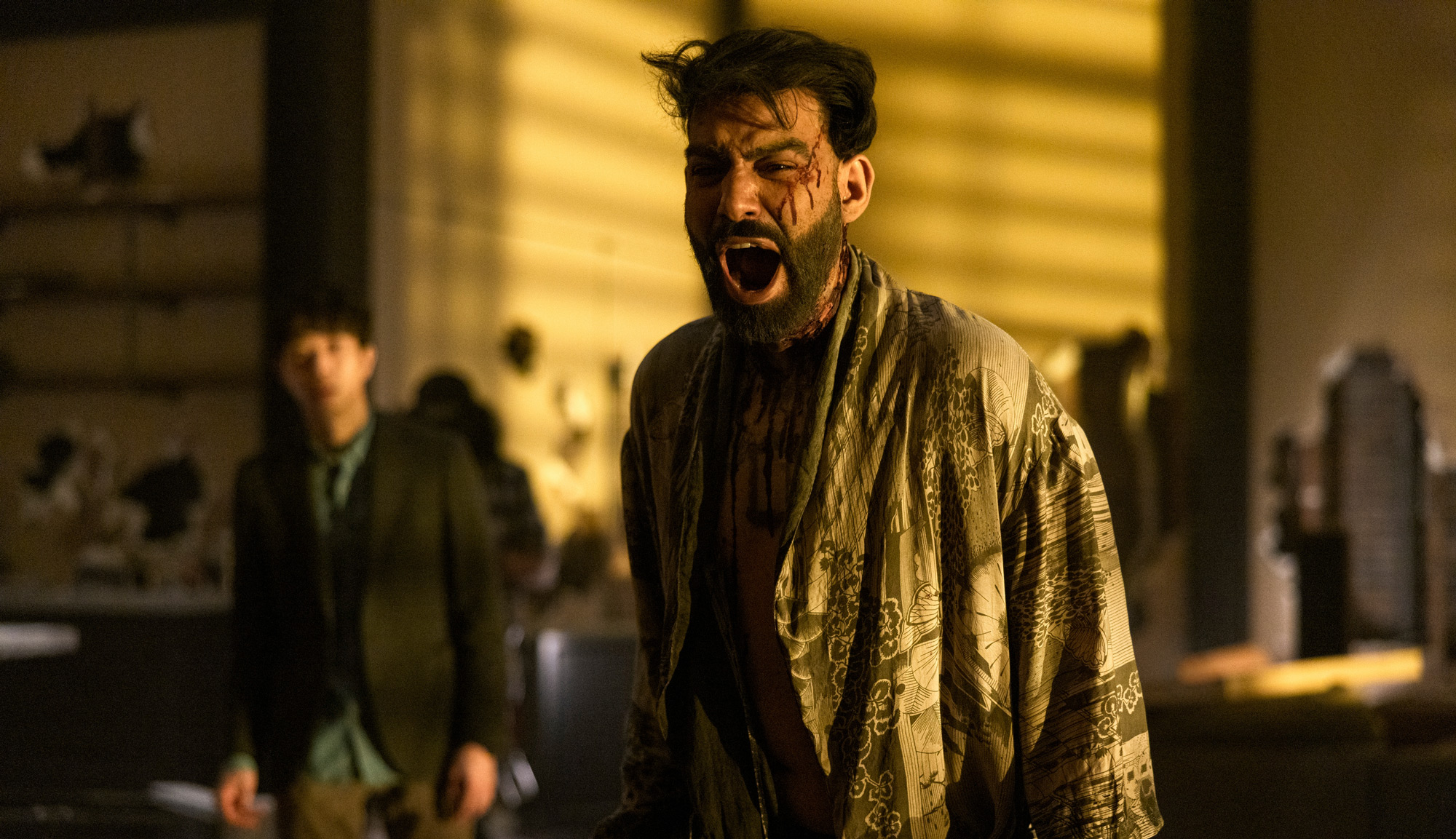
There is something remarkable about being able to look at a block of stone and see the statue waiting to emerge. Making something out of nothing is certainly a real talent, but there’s a singular skill in looking at base materials and knowing how to transform them into something greater. That is what Mike Flanagan and his cohorts have down with “The Fall of the House of Usher.” The original Edgar Allan Poe story — about a man who visits his nerve-addled friend in a crumbling house and then prematurely buries a relative before everything comes crashing apart — is incredibly slight at just a few pages. The 1960 Roger Corman film (starring Vincent Price) expanded on this simple plot by adding in the idea of a familial curse amidst a hereditary line of scoundrels — aspects now associated with the Poe tale by many. And still, Flanagan, fellow director Michael Fimognar and a team of writers took these small threads and expanded them into a beautifully gothic tapestry of dark humor, Grand Guignol gore, intense character studies and terrifying dread that incorporates Poe’s bibliography in increasingly clever and engaging ways. This, the last series Flanagan will helm for Netflix before going to Amazon, is easily one of the best projects that the artist has ever produced and is a wondrously impressive work sculpted out of meager beginnings.
Roderick Usher (Bruce Greenwood) knows that his family is cursed. Along with his sister Madeline (Mary McDonnell), Roderick is the head of a pharmaceutical company, having amassed a massive fortune thanks to his (highly addictive) medical products and dubious business practices. After the most recent round of funerals for his children, Roderick has decided to reveal all his secrets and confess all his sins to his longtime rival, attorney Auguste Dupin (Carl Lumbly). The two sit in Usher’s dilapidated childhood home while the patriarch talks about how his many children (Henry Thomas, Kate Siegel, Rahul Kohli, Samantha Sloyan, T’Nia Miller and Sauriyan Sapkota) all met their grim fates in the past few weeks… and how the entire bloody affair is connected to a mysterious woman (Carla Gugino) who is more than she appears to be.
Dread is a hard atmosphere to maintain in longform storytelling, especially when people know the conclusion. Sustained for too much or too long, and that dread becomes overbearing, leaden and suffocating. Such a firm grasp will have audiences yearning for the story to just get to the obvious climax already. But master artists weave that dread in with other elements to make it come alive and feel more engaging. Viewers know the ultimate ends of (most of) the Ushers from the jump, yet it’s in the telling that it becomes electric and amazing. Everyone knew the Titanic was going to sink, but James Cameron used that inevitability as a tragic backdrop to his consuming romance, which makes the sweet moments all the more important and worth savoring. This family is cursed, and gruesome fates await them, but it’s in defining each of the characters that the fun happens; the horrific outcomes are still shocking but mixed with a sense of karmic justice, arch comedy and even some pangs of regret. You know the destination, even if you don’t explicitly know every detail, but you’re mesmerized by the journey and especially by the unscrupulous traveling companions you meet along the way.
“The Fall of the House of Usher” succeeds on the backs of basically every aspect that goes into making a show (or movie). The writing is superb, with Flanagan leading his writers’ room to deliver shocking moments, intriguing character developments, horrific scenes and more while providing darkly arch commentary about these upsetting events and sketching out figures that aren’t good people but truly absorbing individuals with their indulgences, machinations and weaknesses. That excellent writing shines further thanks to the incredible work of a talented cast, many of whom have been in previous Flanagan projects. Greenwood’s aloof patriarch, melancholically resigned to his terrible fate yet still pragmatically assessing the situation, is a terrific guide through the proceedings, and Lumbly’s audience surrogate role is an outstanding emotional foil for such a maudlin disconnect. Gugino is genuinely mesmerizing in her mysterious role, adding a wry commentary to the events but not without a fair amount of sorrow as well. Mark Hamill is hilariously gruff and foreboding in his lawyer/fixer role, seemingly the most effective jackal in a whole pack of them. Kate Siegel is terrifically blunt and twisted in only the way that a modern spin doctor can be, plus some additional layers of deviancy and venality make her more intriguing. All the performers bring so much to their roles that it elevates the already great scripts to create memorable characters who are complex but still easy to quickly encapsulate and in whom audiences will swiftly be invested.
These aspects of “The Fall of the House of Usher” are greatly assisted by a heightened stylistic approach to the material. DP Michael Fimognari’s beautifully composed shots infuse the show with a modern gothic style — creeping shadows juxtaposed with startling colors against massive architectural backdrops, all while never losing sight of the incredibly expressive faces of the actors. The make-up and visual effects teams deliver impressively horrendous mutilations that will make many viewers squirm and effectively drive home the brutality of the Ushers’ fates. That sense of macabre style of Poe’s stories is properly updated while maintaining the classic immediacy and horror needed to haunt audiences.
“The Fall of the House of Usher” is the perfect viewing for this Friday the 13th during the spookiest of months. It combines the traditional scary elements from 19th-century literature, the immediacy of serial television, the gallows humor of EC Comics and the visceral shock of modern gore effects, all within this immaculately concocted atmosphere that’s best enjoyed on a dark and stormy night. Mike Flanagan and company took a slim tale and expanded it into eight hours of riveting storytelling. It is an impressive feat to be able to see the potential in Poe’s work and cleverly build upon it so that the series encompasses much of the author’s bibliography while still feeling like one unifying work. The ability to weave in so many tones, juggle so many characters and continually find ways to surprise (especially when the outcome is already known) is akin to seeing a block of stone and knowing how to transform it into a tremendous statue. “The Fall of the House of Usher” is a singular achievement for modern horror, but it’s also a high-water mark for storytelling as well.


